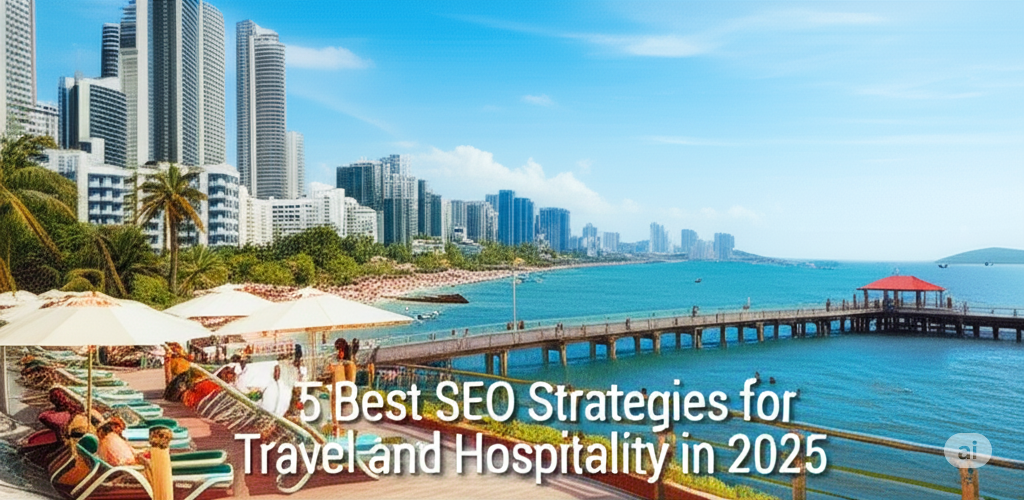Today’s online world is filled with the most useful and useful travel content out there. Whether you’re looking for hotels, a B&B, or an apartment rental, the internet has a too much of great resources for you. What you may not realize is that by optimizing your website for search engines, you can tap into this wealth of information and make money from it. That’s why in this article we’ll explain Best SEO Strategies for Travel and Hospitality and How to get More Visitors on Website.
Why SEO Important for Travel Industry?
Travel businesses are constantly looking for new ways to get the word out about their services and products. Online marketing is a highly effective method of boosting your brand awareness and driving potential customers to your site. Creating an efficient digital strategy can help you build a successful business while decreasing your overall marketing costs.
The primary goal of SEO is to get your travel website listed on the first page of Google’s search results for as many relevant keyword phrases as possible. When someone in the travel industry searches for a new destination, hotel, or B&B, your website should be the first result to pop up. To achieve this, you’ll need to optimize your website for numerous search terms, including your target audience’s preferred words and phrases. By doing so, you’ll drive more traffic to your site, resulting in more bookings, more leads, and more revenue.

How SEO useful for Travel Industry And Hospitality?
In order to increase the number of search results you appear in; you’ll need to optimize your website for a variety of specific terms related to your industry. You can also optimize for broader terms related to travel and hospitality, as well as your location. Your website’s SEO aims to improve your ranking for specific, relevant search terms.
According to Google, SEO is “the process of improving the visibility of your web site or online presence to make it more accessible to the right people at the right time.” One of the most important SEO aspects for travel businesses is gaining exposure for the right keywords. You can target phrases such as “Europe tours,” “South America tours,” or “North America tours.” You can also target specific city names, such as “Paris tours” or “New York tours.”
How to Boost Your SEO with Strategies for Better Results
We will talking about SEO Strategies for Travel and Hospitality in this article. There are a variety of ways to boost your SEO. Here are a few to get you started: –
Use Keyword Research
Before you start implementing strategies, it’s crucial to conduct keyword research. Make sure to examine your competition and see what keywords they’re using. Once you find the right keywords to target, you can start strategizing around them.
Design a Great User Interface
your website’s user interface can have a major impact on how quickly it ranks for specific keywords. A good user interface will improve your site’s usability and speed, which will help your site rank for more keywords and traffic.
Publish Content Daily
Content plays a huge role in boosting your SEO. The more you publish, the better! You can publish articles about destinations, reviews of restaurants and attractions, and even how-to content.
Build Links
Linking your site to external websites will help you boost your SEO. You can also build links on sites like Reddit, Quora, and Facebook groups to boost your rankings.
Make Use of Google Analytics
Your website’s analytics will give you an insight into the number of visitors and how long they stay on your site. You can use these insights to improve your SEO.
Optimize Local SEO for Travel and Hospitality
As travellers and hospitality providers, you’ll want to target keywords related to your industry and location. You can also target broad keywords to boost your exposure. Target local search terms for your town or city. You can also target terms relating to things like “hotels,” “hostels,” “airport transfers,” “tours,” and more. You can also target keywords relating to your industry and travel services. If your company specialises on river cruises, for instance, you might choose to target keywords like “river cruises” or “ocean cruises.”
Optimize for Video Marketing for your Business
As online travel continues to grow, so does the importance of video content. In fact, Google reports that video accounts for 50 percent of all internet traffic. In addition to boosting your site’s rankings, video content is another great way to attract new customers and generate leads. You can create a blog post summarizing your company’s history or services.
You can also include a short video of yourself explaining your business and services, along with images of your locations or attractions. If you have the resources and time, you can also shoot a longer video that explains your company’s history, shows off your locations or services, and interviews your staff. You can share your videos across social media channels, including Facebook, Twitter, Instagram, and your website’s content management system.
Optimize website to get higher ranking on google
SEO is an important factor of any travel or hospitality company’s digital marketing strategy. If you optimize your website for keywords related to your industry, it will rank higher in Google’s search results and receive more visitors. There are many ways to boost your SEO, including keyword research, user interface optimization, content creation, and more.
You can also use URL redirects and title tags to make sure your URLs are accurate and authoritative. Once you’ve done your SEO research, you can start implementing the best SEO strategies to boost your website’s rankings. With the right SEO strategies in place, you can ensure your business gets the exposure it deserves and continues to thrive in the online travel world.
Check also:-
How to Optimize Your Website’s SEO for Tea Business?
What is SEO (Search Engine Optimization)? and how it works?
